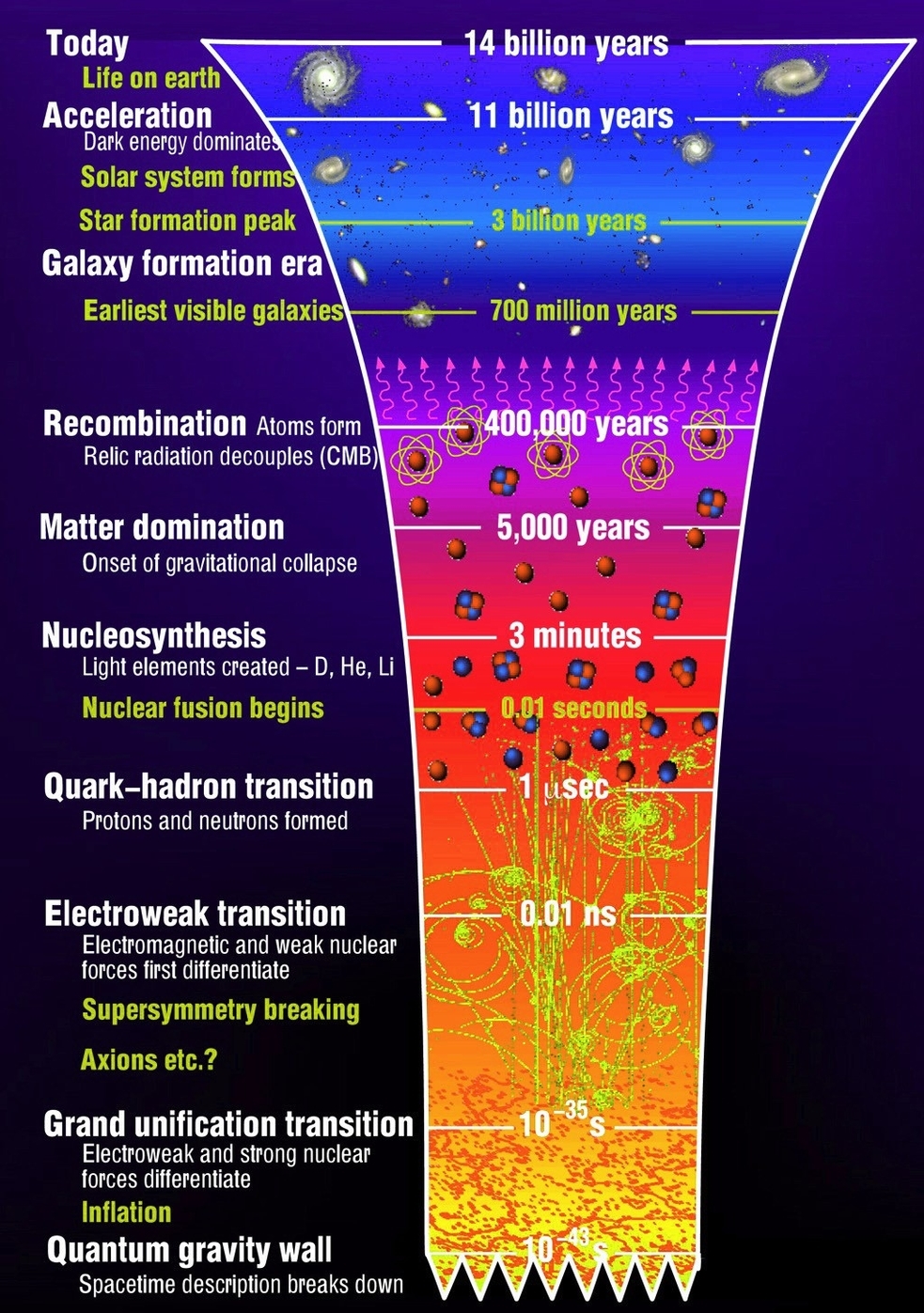
The Big Bang is a scientific theory that describes the origin of the universe. It is believed that the universe began as a single point of infinite density and temperature, known as a singularity. The Big Bang theory suggests that the universe began to expand rapidly from this point, and has been expanding ever since. The timeline of the universe since the Big Bang can be divided into several epochs, each characterized by different physical conditions and events.
The first epoch is the Planck Epoch, which lasted from zero to approximately 10^-43 seconds after the Big Bang. During this epoch, the universe was extremely small and dense, and the four fundamental forces of nature (gravity, electromagnetism, strong nuclear force, and weak nuclear force) were unified. The Planck Epoch is named after Max Planck, who is known as the father of quantum mechanics.
The next epoch is the Grand Unification Epoch, which lasted from 10^-43 seconds to 10^-36 seconds after the Big Bang. During this epoch, the universe was still extremely hot and dense, and the strong nuclear force separated from the other three fundamental forces. Elementary particles and antiparticles began to be created during this epoch.
The Inflationary Epoch followed the Grand Unification Epoch, lasting from 10^-36 seconds to 10^-32 seconds after the Big Bang. During this epoch, the universe underwent an extremely rapid exponential expansion, known as cosmic inflation. The elementary particles remaining from the Grand Unification Epoch became distributed very thinly across the universe.
The Electroweak Epoch followed the Inflationary Epoch, lasting from 10^-36 seconds to 10^-12 seconds after the Big Bang. During this epoch, the strong nuclear force separated from the electroweak force, which is the unified force of electromagnetism and the weak nuclear force. Particle interactions created large numbers of exotic particles, including W and Z bosons and Higgs bosons.
The Quark Epoch followed the Electroweak Epoch, lasting from 10^-12 seconds to 10^-6 seconds after the Big Bang. During this epoch, the universe was still too hot and dense for quarks to combine into hadrons, which are
